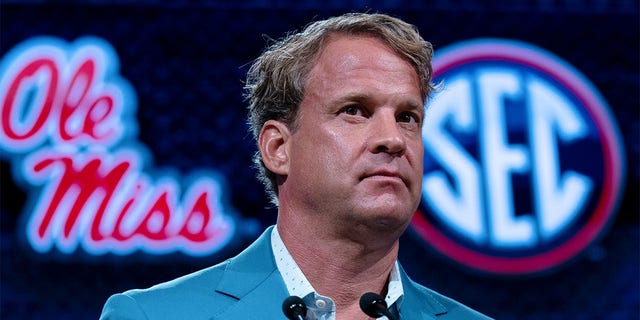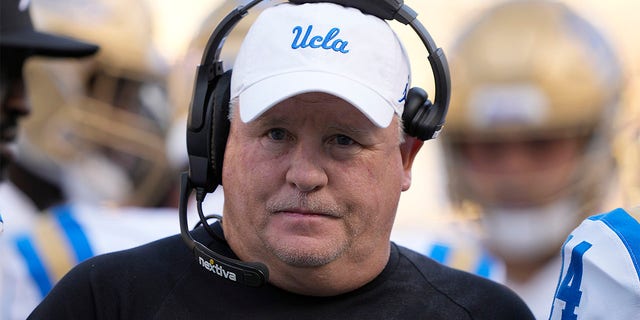Lane Kiffin highlights student-athlete concerns following Pac-12 exodus
College athletics will look much different in 2024 following the mass exodus from the Pac-12.
Five schools announced their departure from the conference last week, leaving just four schools – Washington State, Oregon State, Cal and Stanford – in the conference following the 2023-24 athletic seasons.
While college football is the driver of conference realignment, with it being the main source of revenue for athletic programs, all sports will be impacted by the moves.
The switch in conferences will mean longer travel days for all athletic programs, especially for the sports that play more than once a week.
UCLA’S CHIP KELLY SUGGESTS NOTRE DAME MODEL FOR ALL OF COLLEGE FOOTBALL

On Tuesday, Ole Miss head football coach Lane Kiffin hopped on social media to highlight the concerns of ASU softball player Shannon Cunningham, who discussed the challenges of Arizona State’s move to the Big 12.
“I chose to play in the PAC-12 because of the ability to play close to home and in front of family,” Cunningham wrote. “I chose the PAC so my family didn’t have to worry about far travel or giving up all their vacation time just to come see me. This affects athletes in every sport + academics.”
Kiffin responded to Cunningham’s concern.
“Sorry they obviously didn’t think about how it would affect the ones that actually have to play, travel, and go to class the next day!!” he wrote on X.
He also reposted another concern from Oregon softball player Paige Sinicki.
“I picked to play in a high level softball conference where being close to home would allow my parents to come watch my games. It’s unfortunate to hear that my senior year I’ll be playing as far as New Jersey-Rutgers as well as other east coast schools,” Sinicki wrote Friday.
The issue of travel for sports outside of football has become a major talking point over the last week, as the West Coast schools will now have conference games across all four time zones.
Missouri head coach Eli Drinkwitz questioned whether the moves made considered the impact on athletes outside of football.
“We’re talking about a football decision — they based it off football — but what about softball and baseball [teams] who have to travel cross-country?” Drinkwitz told the St. Louis Post-Dispatch. “Do we ask about the cost of them? Do we know what the No. 1 indicator or symptom or cause of mental health is? It’s lack of rest and sleep.”
“Traveling in those baseball/softball games, those people, they travel commercial, and they get done playing at 4 [p.m.] They got to go to the airport, they come back, it’s 3 or 4 in the morning. They got to go to class. I mean, did we ask any of them? Are we going to look back … ?”
UCLA head coach Chip Kelly suggested college football follow the Notre Dame model, which plays as an independent in football while the majority of its athletic programs compete in the ACC.

“Notre Dame is an independent in football, but they’re in a conference for everything else,” Kelly said, according to the Los Angeles Times. “Why aren’t we all independent for football? Take the 64 teams in Power Five and make that one division, take the 64 teams in Group of Five, make that another division. We play for a championship, they play for a championship and no one else gets affected.
“Our sport’s different than everybody else – we only play once a week, travel’s not a big deal for football, but it is a big deal for other sports. So that’s my theory.”
The disintegration of the Pac-12 began in 2022 when USC and UCLA announced their intention to join the Big Ten conference. Colorado’s decision to rejoin the Big 12 at the end of July then got the ball moving for Oregon, Washington, Arizona, Arizona State and Utah to look elsewhere, with the five schools making their moves to the Big Ten and Big 12 last Friday.
Read the full article Here


